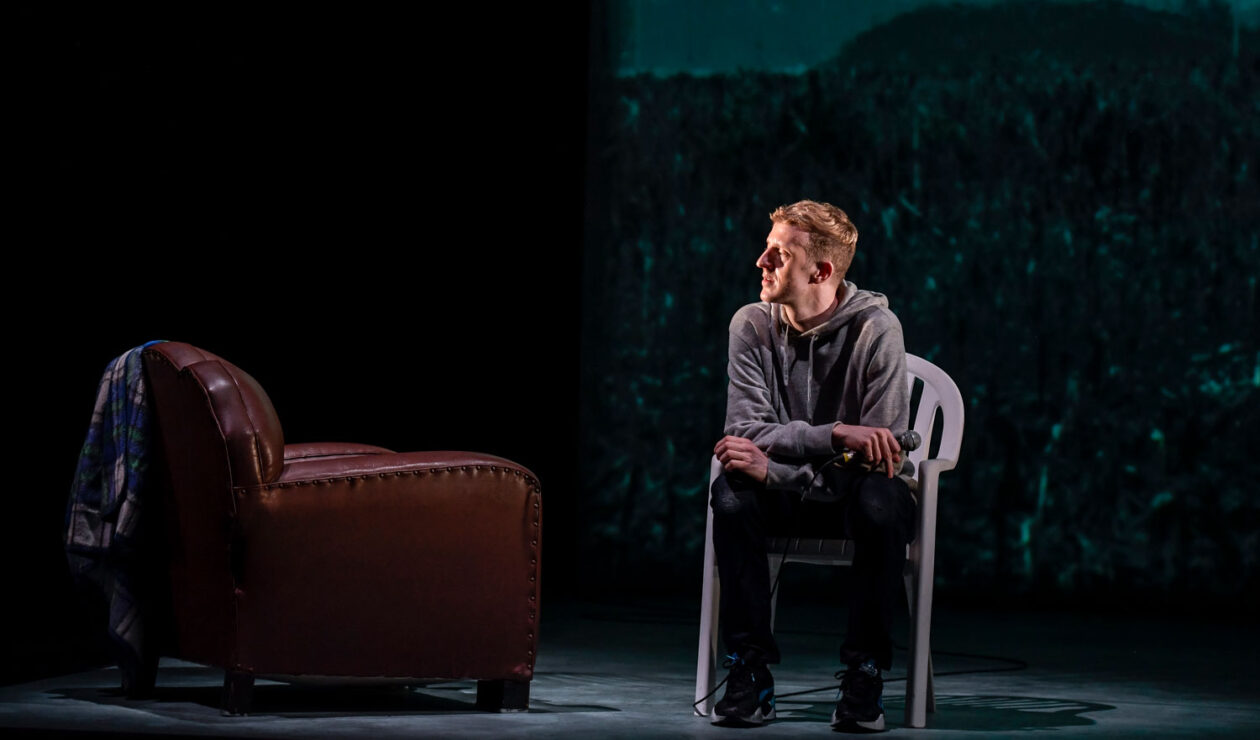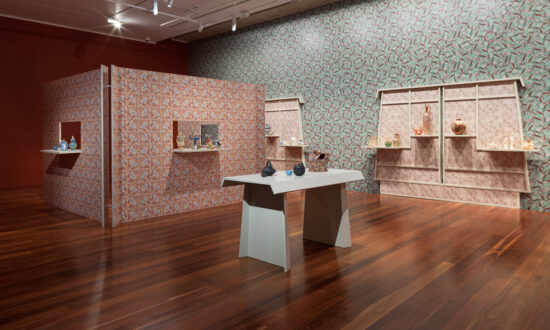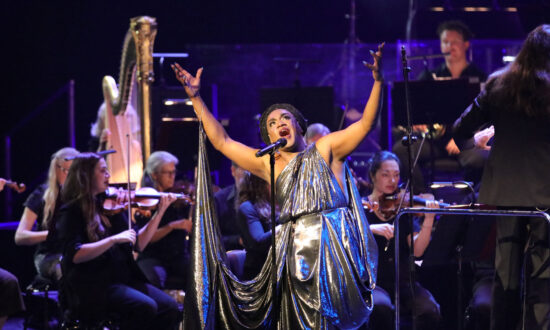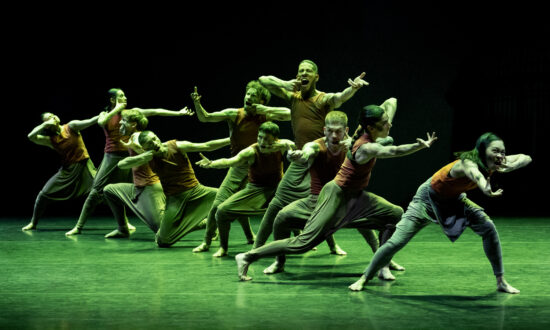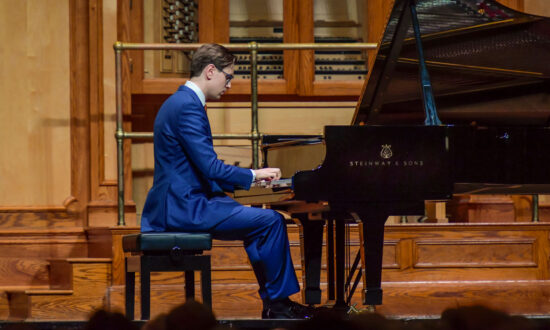In the preface to his harrowing 2018 memoir Qui a tué mon père, Édouard Louis hypothesises: “If this were a text for the theatre, here is how it would begin: A father and son stand a few metres apart in a vast empty space… The son speaks, and only the son, and this does violence to them both: the father is never allowed to tell his own story, while the son longs for a response that he will never receive.”
Now standing on the stage of the Dunstan Theatre, with an adaptation of the book, co-devised and directed by Thomas Ostermeier, Édouard Louis takes a further step to reveal not only the grim reality of his family’s predicament, but the separate and particular tragedies for each of them.
As we file into the theatre, Louis is already waiting for us. Seated at a table with a reading lamp and a laptop, he is engrossed in a task. We briefly wonder: Has he already begun writing his sixth book at age 31? When he rises and moves to the microphone stand at centre front stage, it starts to feel like a TED talk.
He begins as the book does – with a quote about racism from the theorist Ruth Gilmore. “Racism is the exposure of certain populations to premature death. The same definition holds with regard to male privilege, to hatred of homosexuality or trans people, to domination by class – to social and political oppression of all kinds.”
Louis is using a distancing convention that Brecht would recognise – that zoom lens which moves close-in to particular miseries, and then pulls back to show they are the result of deliberate political and organisational intention.
Behind him the drably muted monochrome back-projections (from videographers Sebastien Dupouey and Marie Sanchez) locate us in the vicinity of Hallencourt in Northern France, close to the infamous Somme, where Louis (aka Eddy Bellegueule) grew up in a toxic, violent, homophobic family and spent every fibre of his being escaping it at the age of 18.
He is describing a recent return, met at the door by a father he doesn’t recognise. He can hardly walk or breathe. He is a shadow of the bullish vigorous father he once was; proud of his masculinity, his physical strength. “Don’t be a girl, don’t be a faggot” was the catch-cry persecuting a mere boy, bullied and despised for his difference.
The narrative draws energetic contrasts between Louis and his father’s diminished world. When Louis stages dress-ups in a rolled-up red Pokemon T-shirt and improvises extravagant lip-sync performances of the Barbie song or Whitney Houston’s “I Will Always Love You”, he fills the stage with dance moves and twirls, serenading his father’s empty leather chair in the hope of his attention and approval.
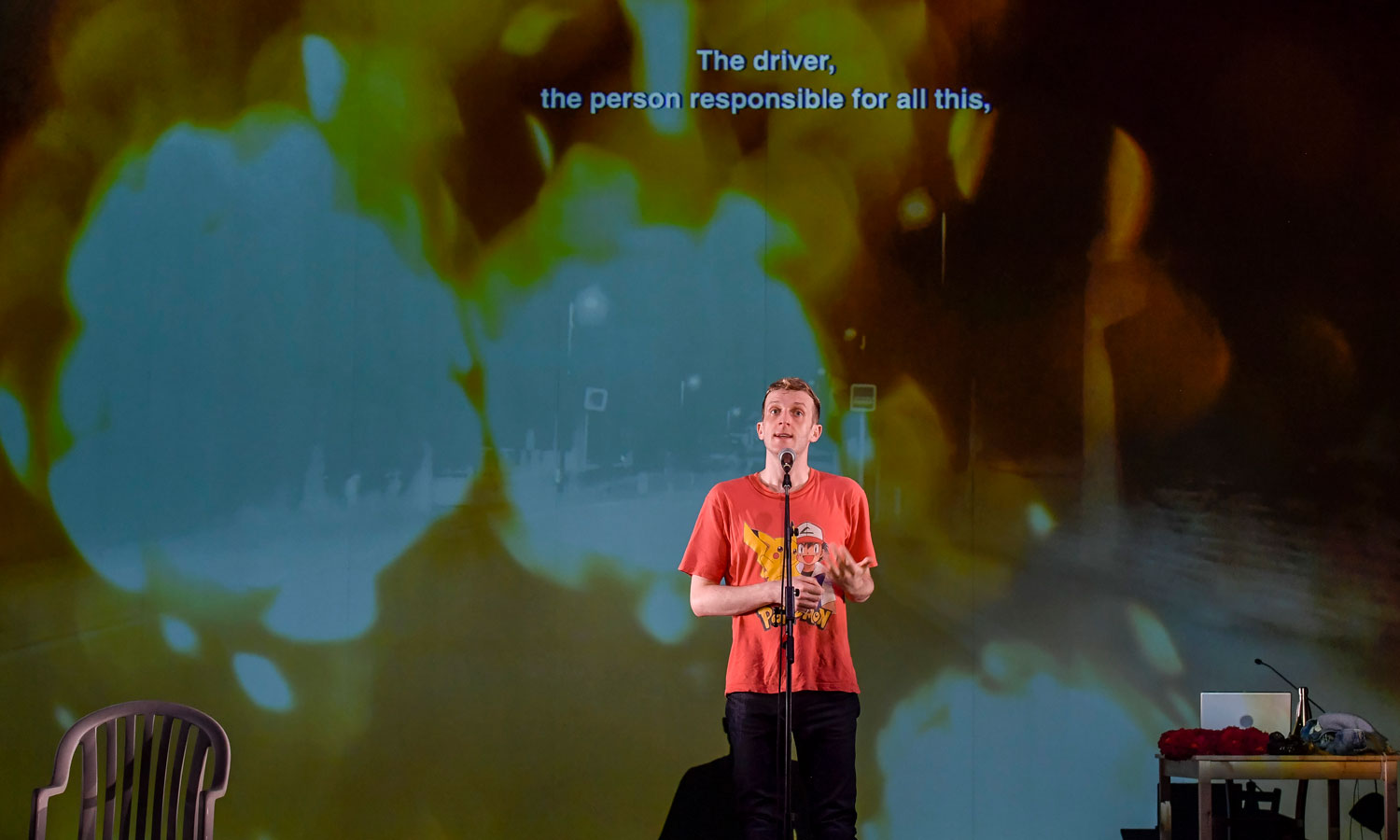
Qui a tué mon père (Who killed my father). Photo: Roy VanDerVegt
While the book provides extended and harrowing accounts of Eddy’s persecution at school, from his step-brother, from his abused and beaten mother, and his bitter drunken father’s physical and psychic violence, in the stage adaptation there is more respite.
More emphasis is given to anecdotes that mitigate the father’s infamy. Like when he relents and buys a VHS copy of The Bodyguard which his son then proceeds to watch ad nauseam. The father, a keen dancer in his youth, finally reluctantly admits his son is a talented performer.
Which indeed he is. Deftly directed by Schaubühne Berlin director Ostermeier, Louis is not only an eminent writer, but also a performer with presence. His assured, splendidly cadenced delivery has a calm, confiding quality. It lends, by its restraint, more intensity to its revelation and polemic.
Subtly lit by Erich Schneider with an often subliminal but strategically insistent score by composer Sylvain Jacques, this production is admirably constructed.
It is notable that the play’s title – Qui a tue mon pere (Who killed my father) – has no question mark. That is because the author is in no doubt who is to blame.

Get InReview in your inbox – free each Saturday. Local arts and culture – covered.
Thanks for signing up to the InReview newsletter.
I am not sure if he needs to wear a Zorro mask, a cape, and a clown’s cone hat to deliver it, but Louis’s concluding speech, as in the book, is a startling indictment of the policies (of four French presidents) which have destroyed his father’s health and well-being. Only in his fifties, he is broken and near death. His back crushed in a factory accident, he is then forced out to work as a street sweeper. His son, in indignation, names names.
The first night audience cheers Édouard Louis for such engaging and timely analysis and candour. But it is also an indictment we should reflect on much closer to home – long after our applause ends.
Who killed my father is playing at the Dunstan Playhouse until March 10.
Read more 2024 Adelaide Festival coverage here.
Support local arts journalism
Your support will help us continue the important work of InReview in publishing free professional journalism that celebrates, interrogates and amplifies arts and culture in South Australia.
Donate Here
